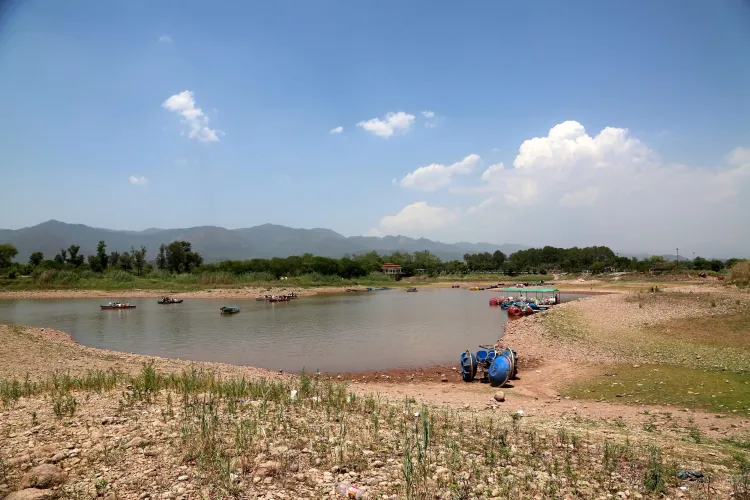Is Unregulated Groundwater Extraction Threatening Pakistan’s Environmental Stability?

Synopsis
Key Takeaways
- Unregulated groundwater extraction is a significant threat to Pakistan’s environmental stability.
- The Indus River system is vital for agriculture and drinking water.
- Keenjhar Lake and the Ravi River are under severe threat from pollution and over-extraction.
- The 2022 floods exposed the fragility of water management in Pakistan.
- Sustainable practices are essential to mitigate groundwater depletion.
Islamabad, Sep 4 (NationPress) Pakistan is teetering on the brink of an environmental disaster due to climate change and the rampant misuse of its essential resource: water. A recent report indicates that unregulated groundwater extraction poses a critical threat to the nation’s environmental and social fabric.
At a recent event titled 'Building Water-Sensitive Communities: Collaborative Solutions for Freshwater Sustainability,' experts highlighted the escalating crisis confronting Pakistan's freshwater ecosystems, as reported by Islam Khabar. Water has always been central to Pakistan’s survival, with the Indus River system serving as the nation’s lifeblood, underpinning agriculture, industries, and daily living. However, increasing water demand, coupled with poor governance and outdated practices, is dangerously depleting groundwater reserves.
Masood Arshad, Senior Director of WWF’s Freshwater Programme, emphasized the seriousness of this crisis, pointing out how unregulated groundwater pumping is harming delicate ecosystems. Along the Indus, Keenjhar Lake, and the Ravi River, visible signs of collapse are emerging: shrinking wetlands, dwindling fish populations, and escalating water salinity. This issue is exacerbated by Pakistan’s demographic growth and agricultural demands, as highlighted in the report.
With a population exceeding 240 million, Pakistan’s water demand continues to surge, yet conservation and regulation are nearly non-existent. Farmers heavily rely on tube wells for irrigation, while urban areas engage in reckless over-extraction, with groundwater serving as the primary drinking water source for millions.
The report states, “The Indus River, once a mighty artery flowing the length of the country, is increasingly reduced to a mere shadow of its former self. Excessive extraction, alongside upstream diversions and the impacts of climate change, has left vast stretches of the river struggling to maintain flow. The ecological consequences are dire.”
Keenjhar Lake, one of Pakistan's largest freshwater lakes and a vital Ramsar site, is also under threat. Over-extraction from groundwater reserves that feed the lake, in addition to pollution and mismanagement, has turned this vital ecosystem into a deteriorating habitat. Meanwhile, the Ravi River, once a vibrant waterway, is now suffocated by unchecked pollution and diminished flows due to groundwater extraction.
“Groundwater depletion does not exist in isolation. It heightens Pakistan’s vulnerability to climate shocks, magnifying the devastation caused by extreme weather. The 2022 monsoon floods, which submerged a third of the country and displaced millions, starkly illustrated how fragile the nation’s water management system has become,” noted the Islam Khabar report.
The almost non-existent regulation regarding groundwater extraction allows individuals, industries, and farmers to exploit reserves without oversight. The report concludes, “Unregulated groundwater extraction is not merely a technical issue—it is an existential threat to Pakistan’s environmental and social stability. The degradation of the Indus, Keenjhar Lake, and the Ravi River reflects a broader unraveling of ecosystems that have long supported the nation’s populace. Each year of over-extraction deepens the crisis, leaving Pakistan increasingly vulnerable to food insecurity, health crises, and climate-related disasters.”









